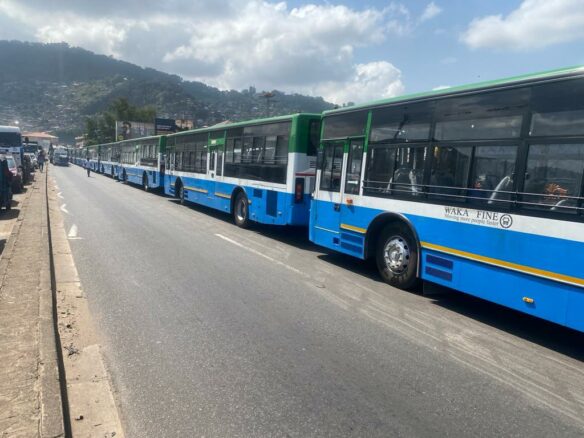Freetown Urban Mobility Project: Insights and Impacts


Freetown Urban Mobility
Freetown’s Urban Mobility Enhancement: A Comprehensive Overview and Analysis of the Freetown Urban Mobility Project and Why Sierra Leoneans Need to Know What the $50 Million Integrated and Resilient Urban Mobility Project Grant Entails
By Kortor Kamara
Email: Kortorkamara@yahoo.com
Recent Posts
President Bio Turns 61: A Legacy of Democratic Firsts
On his 61st birthday, President Julius Maada Bio’s journey offers more than just candles and…
SLPPNA Convention 2025 Election Disputes Shake Leadership
Three SLPPNA chapter elections were annulled, raising allegations of manipulation by Chairman Pessima as he…
SLPP North America Leadership Twist
Explore the behind-the-scenes politics of SLPP North America as Chairman Pessima maneuvers for a second…
President Bio Expands Sierra Leone’s UNIDO Partnership in Key Sectors
Sierra Leone’s President Julius Maada Bio reinforces the nation's collaboration with UNIDO, aiming to drive…
First Lady Fatima Bio Honored at London Political Summit
Dr. Fatima Maada Bio, First Lady of Sierra Leone, was honored at the 9th Annual…
Bio Launches 5th Generation Justice Reform Strategy
New Brookfields Hotel, Freetown, Thursday, 12 September 2024 — Sierra Leone’s President, Dr. Julius Maada…